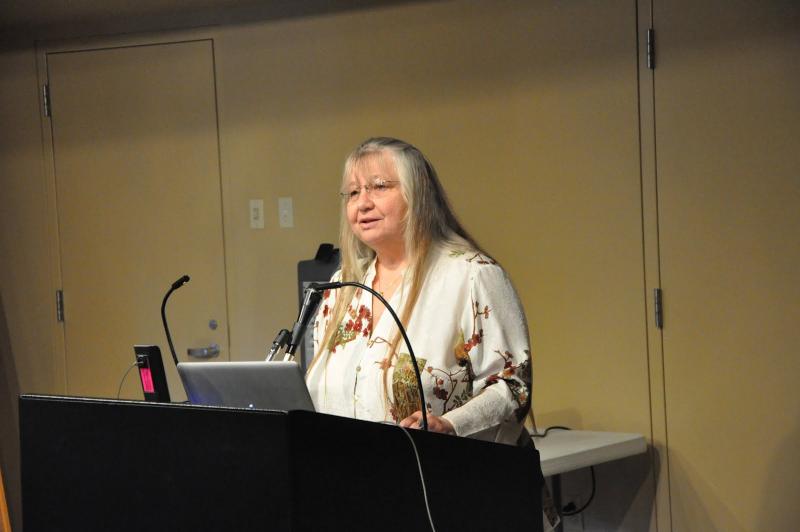Who's afraid of Emma Goldman?

A group of 20 adults sat calmly in rows of chairs facing a podium at the Skidompha library on September 20.
There was no yelling, no angry mob and no violence.
The respectable-looking group was hardly the crowd one would expect for Kathy Ferguson’s presentation in support of her new book “Emma Goldman: Political Thinking in the Streets.”
Born in 1869, Emma Goldman was a feminist, an advocate of free speech, a skilled writer and a rousing lecturer.
But through and through, Goldman was an anarchist. One of thousands of active anarchists working on the social issues of the first half of the 20th century, Goldman's work covered a myriad of issues, from women’s contraception to rights for striking workers.
Ferguson explained to her audience that anarchism is a political philosophy that strives to cause change and a shift in power, usually as a reaction against hierarchical organizations like capitalism.
Ferguson’s lecture revealed that the violence often associated with anarchism was not all that prevalent, nor was it the driving force of the movement.
She said that in the anarchist’s own autobiography, Goldman came to understand that “the means with which you seek change has to be consistent with the change you seek,” meaning Goldman believed only peaceful resistance and reconstruction would truly end the violence of patriarchy and capitalism.
A history mostly forgotten, interest in anarchism seems to have grown steadily over the last 20 years, according to Ferguson. But due to what?
“In Emma Goldman’s America, capitalism had not yet won,” Ferguson said.
In Goldman’s time, it wasn’t unusual or controversial to have mayors, governors and other leaders identify as socialists or other political groups that are no longer mainstream, Ferguson said. These political systems may be of growing interest because, as time passes, they have become more foreign in America.
The recent political movement of Occupy Wall Street and tactics of groups like Anonymous have given an even more recent boon.
Of the Occupy Wall Street movement, Ferguson said, “They are definitely anarchists. Goldman would have loved them.”
Never having heard of Emma Goldman, simple curiosity and an interest in progressive education and political movements brought attendee Nancy Ziegenhagen to Skidompha.“I did not think of (Occupy) when I thought of anarchism,” Ziegenhagen said.
Tom Dodge, another attendee and a former community college professor, expressed his interest in the feminist issues Goldman worked on. “I have two daughters and I want them to be able to do whatever their interests and competences lead them to do,” he said. “Listening to (Ferguson) was an uncommon pleasure.”
Like Goldman, Ferguson tried to capture her audiences’ attention and shared her knowledge in an accessible way.
“I thought she was able to talk to us very straightforwardly, and you could tell that underneath that was a good deal of research and information,” Ziegenhagen said.
If the questioning, curious audience at Skidompha Library is any indication, interest in the history of anarchism is still growing, perhaps meaning it won’t remain a hidden history for much longer.































